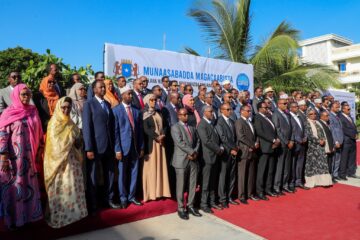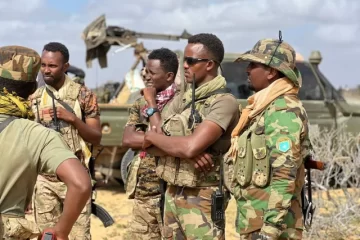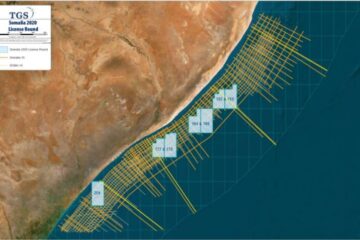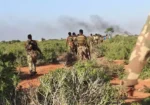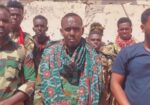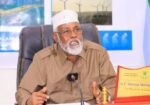Somalia on edge of famine amid offensive against Al-Shabaab
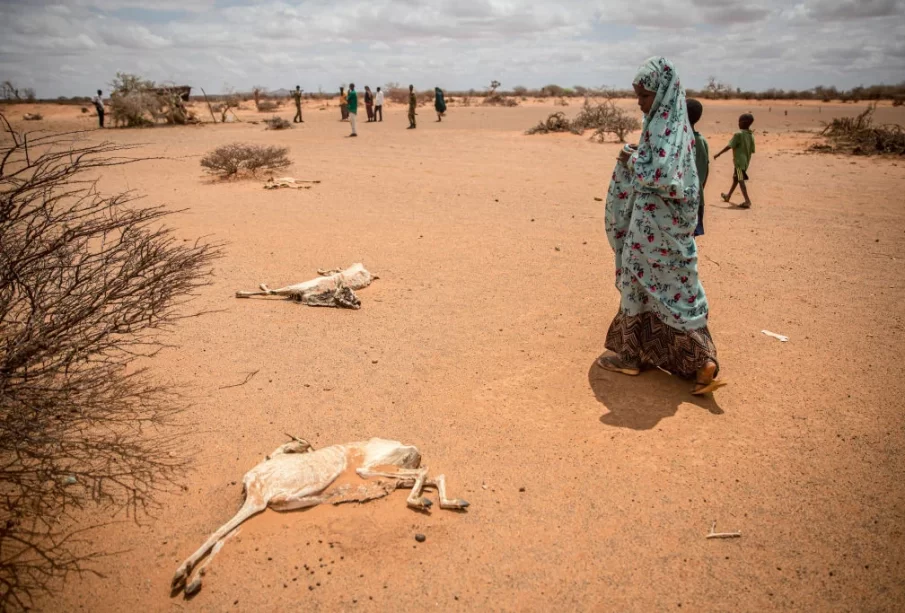
Thousands of people have died in Somalia since January 2021 when the drought in the country began. At least1.5 million children under the age of five face acute malnutrition, according to Concern Worldwide, an international humanitarian organization.
The UN’s weather agency has warned that the Horn of Africa region is set for a fifth consecutive failed rainy season that will unleash dire consequences for Somalia.
The continuation of failed rains means that thousands in Somalia are at risk of dying from putting the Horn of African country on the edge of famine.
The situation is precarious bringing memories of the July 2011 famine in which over a quarter of a million people—half children under five—died. While donors and aid agencies have pledged to support Somalia to avert a looming famine, the response has been slow compared to 2011.
Abdirahman Abdishakur, Somalia’s Special Presidential Envoy for Drought Response, has been traveling frequently to mobilize and coordinate international support to stop the worsening humanitarian disaster in Somalia but to little avail.
Multiple disasters
A plethora of crises such as the conflict in Ukraine and elsewhere in Africa and in the Middle East, and recent floods in Pakistan have shrouded the humanitarian disaster in Somalia.
In remarks to TIME, Gayle Smith, CEO of One.org, described Somalia as experiencing “an invisible famine”.
“It’s on the horizon, it’s happening. There’s been plenty of warning from the Somalia authorities, from NGOs from others. I think there’s some awareness, but it has not triggered the kind of international response that one would expect, and is in fact needed,” Smith said.
He noted that the world is dealing with more crises than ever before which have stretched the funding. This, he added, “risks elongating the crises and failing to assist people we can actually reach.”
Besides, droughts in Somalia have become so recurring that there is ‘compassion fatigue’ among donors.
Removing the main stumbling block to aid delivery
Stretched funding and compassion fatigue are not the only factors complicating the response to famine in Somalia. Al-Shabaab has been a major stumbling block to aid delivery.
The group has been fighting the central government for close to two decades. It has put in place stringent requirements for aid agencies working in areas under its control hence discouraging aid delivery. As a result, many Somalis continue to starve.
The Somali government and its African partners have not been successful in fully liberating large swathes of the country from the group’s punishing grip.
In recent weeks, a string of coordinated operations between the Somali government forces and armed local clans, commonly known as Macawiisley, have so far managed to push the terror group from key towns and villages.
Resentful Al-Shabaab militants have destroyed water infrastructure as a punitive measure against local communities in liberated areas at a time when thousands die from drought.
Since his re-election in May, President Hassan Sheikh Mohamud has vowed to liberate the whole country from Al-Shabaab to, among many other objectives, pave way for the delivery of aid in the liberated areas which are the most affected by the ongoing drought.
In his latest opinion piece to Hiiraan Online website, pledged “finish off Al-Shabaab”. He accused the terror group of killing the Somali people and robbing them “of their hard-earned sources of livelihood and property.”
Describing Al-Shabaab as a “cancer”, Mohamud warned that the group remains “the most existential threat to the gradually recovering Somali state” that needs to be collectively defeated if the “future and the welfare of the coming generations” is to be secured.
“At this painfully difficult time of humanitarian and economic challenges, they continue to blow up water wells, forcefully take away people’s livestock and extort payment from struggling businesses that support families, individuals, and their communities,” Mohamud wrote.
Somalis to fend for themselves
The interlocking and complex crises, including the COVID-19 pandemic, the war in Ukraine, the global rise in fuel and food prices, and climate change among others have caused the global economy to sink.
Wealthy countries that have long supported crisis-ridden countries like Somalia are also struggling forcing them to dramatically cut their aid budget. Hence, in an emerging ‘self-help’ world, Somalis have been largely left to fend for themselves. The Somali government’s efforts to mobilize troops and communities to wage an all-out offensive against Al-Shabaab is a testament to this.
The collective efforts against Al-Shabaab have been successful at putting the group on the back foot. The achievements made thus prove the resilience of the Somali people and their quest for freedom. If this means anything is that support of the international community has never been more inevitable in ridding Somalia of the twin calamities of terrorism and drought.

